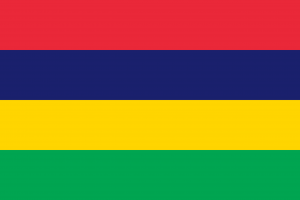Language/Morisyen/Grammar/How-to-Use-Be
Hi Morisyen learners! 😊
In this lesson, we will learn the most basic and essential grammar rule in all languages: how to use the verb "be"! The verb "be" is used to describe or identify a state of being. It is the verb that connects the subject to the predicate. It's the foundation of many sentences, and it's important to understand how to use it correctly in order to communicate effectively in Morisyen. So let's dive right into the lesson!
"Be" in English[edit | edit source]
In English, the verb "be" has three different forms: "am", "is", and "are", depending on the subject. Here are some examples:
| English | Morisyen | Translation | ||||||
|---|---|---|---|---|---|---|---|---|
| I am | Mwa-la inn | I am | He is | Li inn | He is | They are | Zot inn | They are |
We can also use "be" to form questions and negative sentences:
| English | Morisyen | Translation | ||||||
|---|---|---|---|---|---|---|---|---|
| Am I right? | Mwa-la inn korek sa? | Am I right? | She is not here. | Li pa la. | She is not here. | Are they happy? | Zot inn kontan? | Are they happy? |
Now that you have an idea of how "be" works in English, let's move on to how it is used in Morisyen.
"Be" in Morisyen[edit | edit source]
In Morisyen, we only have one form of the verb "be", which is "inn". Here are some examples:
| Morisyen | Pronunciation | English | ||||||
|---|---|---|---|---|---|---|---|---|
| Mwa-la inn | mwala in | I am | Li inn | li in | He/She/It is | Zot inn | zot in | They are |
"Be" is also used to form questions and negative sentences in Morisyen:
| Morisyen | Pronunciation | English | ||||||
|---|---|---|---|---|---|---|---|---|
| Mwa-la inn korek sa? | mwala in korek sa | Am I right? | Li pa inn la. | li pa in la | He/She/It is not here. | Zot inn kontan? | zot in kontan | Are they happy? |
Now let's take a look at some examples in context:
Dialogue 1:
- Person 1: Ki mannyer ou pe ale? (How are you going?)
- Person 2: Mwa-la inn byen, mersi. E ou menm? (I am fine, thank you. And you?)
Dialogue 2:
- Person 1: Ki atfer ou pe fer? (What are you doing?)
- Person 2: Mwa-la inn aprann Morisyen. E ou menm? (I am learning Morisyen. And you?)
As you can see from the dialogues, "be" is an essential verb in Morisyen, just like in English. Make sure to master it in order to communicate effectively!
Practice[edit | edit source]
To practice using "be" in Morisyen, try to form your own questions and negative sentences. You can also try to have a conversation with a native speaker on Polyglot Club. Find native speakers and ask them any questions!
Conclusion[edit | edit source]
Congratulations! You have learned how to use "be" in Morisyen. Remember, practice makes perfect! If you want to improve your Morisyen Grammar, you can also use the Polyglot Club website. ➡ If you have any questions, please ask them in the comments section below.
➡ Feel free to edit this wiki page if you think it can be improved. 😎
Having concluded this lesson, consider checking out these related pages: Future Tense & Conditional Mood.
Other Lessons[edit | edit source]

